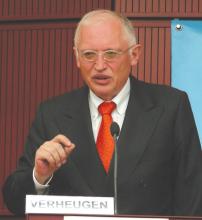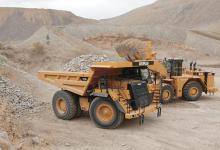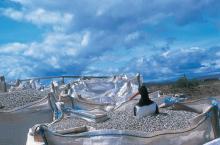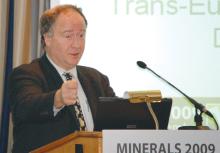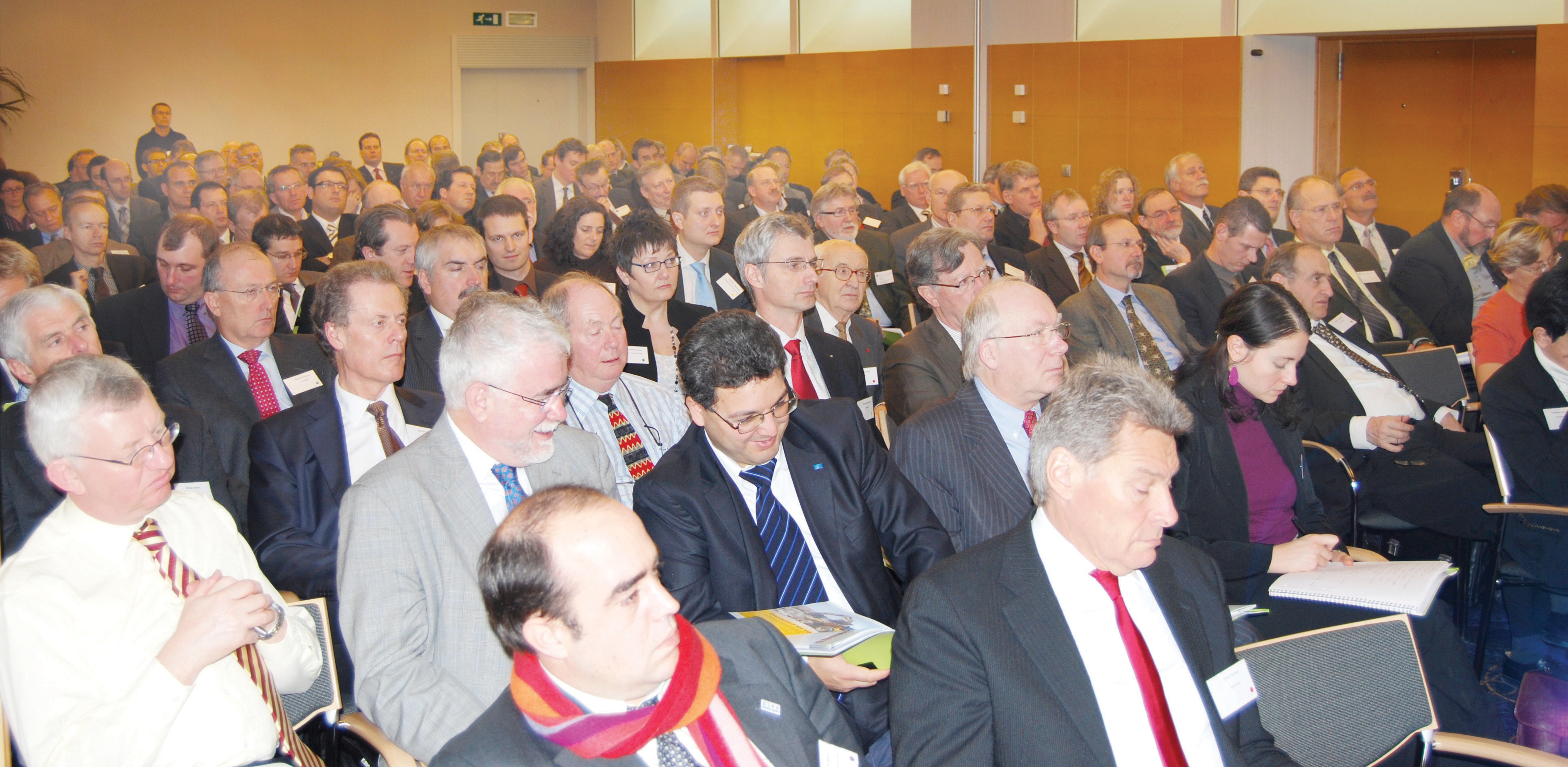
Shaping the EU strategy for security of supply of raw materials in Europe is critical, the UEPG reports on progress
Just over a year ago,
But that was just the start, rather than the end of the process and on 24 November 2008, Michael Schulz, a former UEPG president, and Denis Mertens had a second meeting with Verheugen to discuss incorrect implementation of Natura 2000 in some EU Member States. This received support through a new Guidance Paper for the European Non-Energy Extractive Industry, which calls on competent authorities to better and more accurately implement Natura 2000 Directives and permit extractive activities in or close by Natura 2000 areas, if compatible with the environmental protection objectives.
In between these two meetings, UEPG and its partner associations from the Non-Energy Extractive Industry (NEEIP) have been very active to ensure that major challenges for the sector are considered and included in the EC Communication on Raw Materials Initiative. This initiative is an essential step forward if implemented properly and followed-up by stakeholders.
The importance of the issue to the sector is clearly demonstrated by the attendance of more than 140 senior industry executives at the European Minerals Forum 2008 where Verheugen presented the recently adopted
In order to increase the sustainable supply of raw materials - the first challenge - it was recommended that industry needs to provide data on sustainable development, to seek the further engagement with the Commission and the
The second challenge is the importance of ensuring sustainable and more transparent supply from third countries. Recommendations included adopting a long term approach and to take into account that minerals from European sources ensure a high level of sustainability. When extracting minerals in developing countries, the EU should support capacity building and infrastructure development and ensure a clear legal and administrative framework for European companies.
Establishing an adequate knowledge base of raw materials is the third challenge which has been advocated at European Union meetings by
The final session targeted at increasing public awareness of the importance of the European Minerals sector. It was recommended to communicate in a modern way the same set of messages and to align the industry. Good news and solutions should be disseminated while underlining the business case and the importance to the local economy.
It is now up to the Council of Ministers and the European Parliament to provide their input to the Raw Materials Initiative. This will have without doubt the effect of raising political awareness amongst policy makers and legislators. This awareness has so far been focused on the energy side and too little attention paid to non energy minerals, which are also critical to the development and above all to the competitiveness of the European Union.
The next European Minerals Forum will take place on 25 November 2009.

